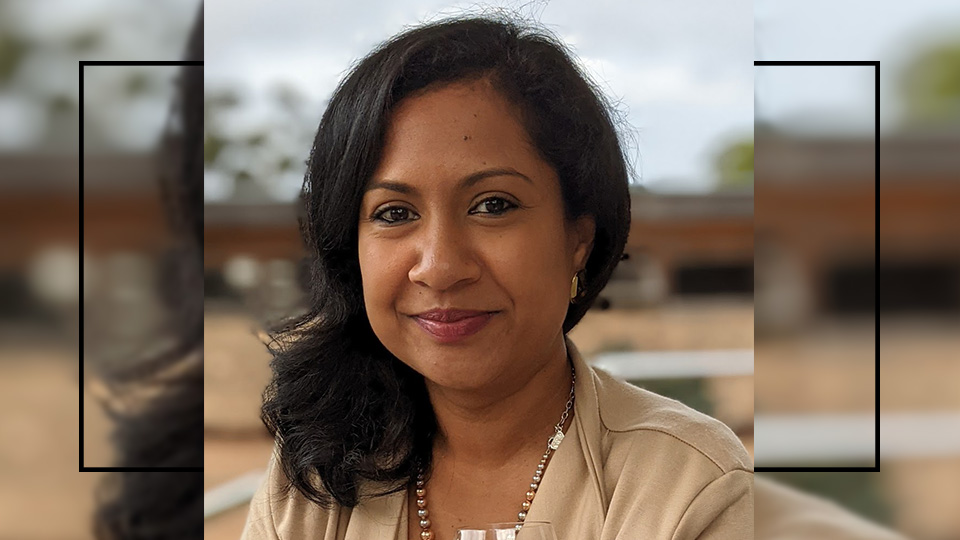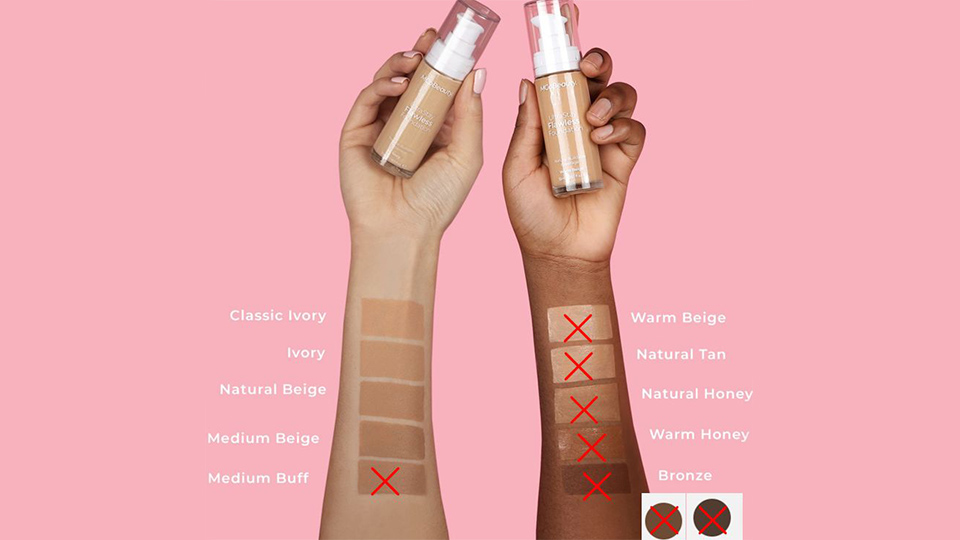Call for shops to end ‘make-up discrimination’ against women of colour
Emma Lennon | July 7, 2021

Rebecca Willink (pictured, above) is demanding that Australian supermarkets start selling make-up for all skin colours.
Diversity in media and the beauty industry has come a long way, yet glaring holes and discriminatory practices persist.
For centuries, women have been fed the idea that beauty exists only within a narrow, Eurocentric range of young, white, thin, and wealthy cis-het women.
These unrealistic beauty standards have a range of detrimental impacts on the mental, social and physical wellbeing of women, from medical discrimination to disordered eating.
When Melbourne-based woman Rebecca Willink first started experimenting with make-up as a teenager, she quickly realised that most make-up brands didn’t offer products that matched her skin tone.
Willink, who is of Indian descent, said when shopping with her lighter skinned friends, the white-washing and lack of diverse, affordable products became starkly evident.
“Whilst they could buy affordable foundations from multiple brands in pretty much any store, I was unable to find a single shade that even came remotely close to my skin colour,” she said.
Willink tried to make do with the few darker shades available, with results that left her feeling embarrassed, ostracised and uncomfortable in her skin.
Ultimately, she and her mother were left no option but to visit a high-end department store, spending three to four times as much on a single foundation bottle compared to her white counterparts.

Only ivory and beige shades of the MCoBeauty range is stocked by Woolworths and Big W. Image: Rebecca Willink.
Fighting colourism in the beauty industry
After years of being unable to access affordable make-up, Willink was excited about the launch of a new beauty brand, MCoBeauty, which was stocked exclusively at Woolworths and Big W and promised “luxe for less” make-up.
Willink was pleased to see a few shades that could work for her, though the range was still quite small.
When she saw the brand was on sale for half price, Willink carefully combed the aisles of multiple local supermarkets, to find that not one of them offered her shade, stocking almost exclusively ivory and beige foundations.
“I asked the manager on duty if they had any stock at the back or in other stores, so he searched the system and explained that the darkest shade available in any store in Australia was medium beige. They stocked four shades out of the 13,” she said.
The only way Willink could try these products was to purchase directly from the manufacturer’s website, which would cost her $38 including shipping, rather than the $13 in-store sale price available to those with lighter skin.
Finding the right foundation shade is extremely difficult to do when ordering online, creating yet another barrier to free self-expression and access to the same cosmetic experience most white women take for granted.
Willink posted a complaint about her experience on Woolworths’ Facebook page, and started a petition for Australian retailers to stock make-up that reflected the diverse skin tones of Australian women.
“My motivation was to highlight the inequality in access to products for people of colour and the lack of representation in the beauty industry in general,” she said.
“I wanted people to realise what has been happening in Australia for so long and to see how systems in society prioritise the needs of the white majority whilst ostracising those in minority groups.”
Retailers’ responses have been slow and often consisting of vague placatory statements with no tangible plans to do better for the thousands of women in a similar predicament.
Willink’s online activism has generated plenty of support and gratitude from women also frustrated with the racial discrimination in the beauty industry. Having to pay more or travel to specialist stores to buy make-up serves as a constant reminder of the broader discrimination and barriers to inclusion people of colour face on a daily basis.
Women of colour are already more likely to experience poverty, and face additional barriers to financial freedom, making more expensive products unaffordable, with the idea to simply “shop elsewhere” tone deaf and racially insensitive.
Excuses like insufficient shelf space, and unfulfilled guarantees of online price matches are inadequate and often insulting responses to what are legitimate critiques of powerful capitalist companies that are usually governed by boards of wealthy white people.
The lack of genuine representation is a serious failure on the part of retailers, who have only recently started including models with darker skin to present themselves as allies with performative displays of ‘diversity’.
The onus of progress towards true inclusion must be on corporations to create space for all people to be represented in their make-up shelves, rather than expecting individuals to constantly fight for basic visibility and equity.
Sponsored

Mainstream beauty brands are never available in darker shades at affordable prices, says Willink. Image: Rebecca Willink.
The racist roots of the beauty industry
The beauty industry has been built on racist and misogynistic foundations, starkly evident by the persistence of skin-lightening products, strategic photo airbrushing, and the perpetuation of the young, white, thin woman as the gold standard of beauty.
Some progress has been made, but too often the representation of women of colour is tokenistic and performative.
Women of colour need to be at the table, making decisions at management and leadership levels, and powerful companies need to make clear, meaningful commitments to increasing their diversity at every level of the organisation.
“We need to address the psychological implications of the lack of representation for BIPOC in the make-up industry and our society in general – particularly for our younger, impressionable generations,” said Willink.
“Failing to see your skin colour represented on shelves or in the beauty industry, or being unable to buy the products you need easily and at equal prices to others on a regular basis, can manifest in feelings of anxiety, depression, low self-worth and self-esteem, shame, embarrassment, frustration and isolation.
“We need to do better to protect BIPOC from the mental health effects of racial trauma.”
Sign the petition for more inclusive beauty products
You can support Willink’s movement by signing her petition to inform Australian retailers of the demand for inclusive and diverse representation of Australian women.
You can also follow the progress of her journey on her Instagram account, and use your own online platforms to call out injustices and racial biases wherever you see them.
We have a request
SHE DEFINED’s journalism is independent and we’re committed to elevating the voices of women by putting them front-and-centre in our stories and giving them a platform to speak up.
Quality journalism and editorial content takes time, money and resources to create, which is why your support matters. We don’t have a paywall or exclusive subscriptions because we believe in keeping our stories open to everyone.
Help support our mission by making a financial contribution today.

Emma Lennon
Emma Lennon is a passionate writer, editor and community development professional. With over ten years’ experience in the disability, health and advocacy sectors, Emma is dedicated to creating work that highlights important social issues.






